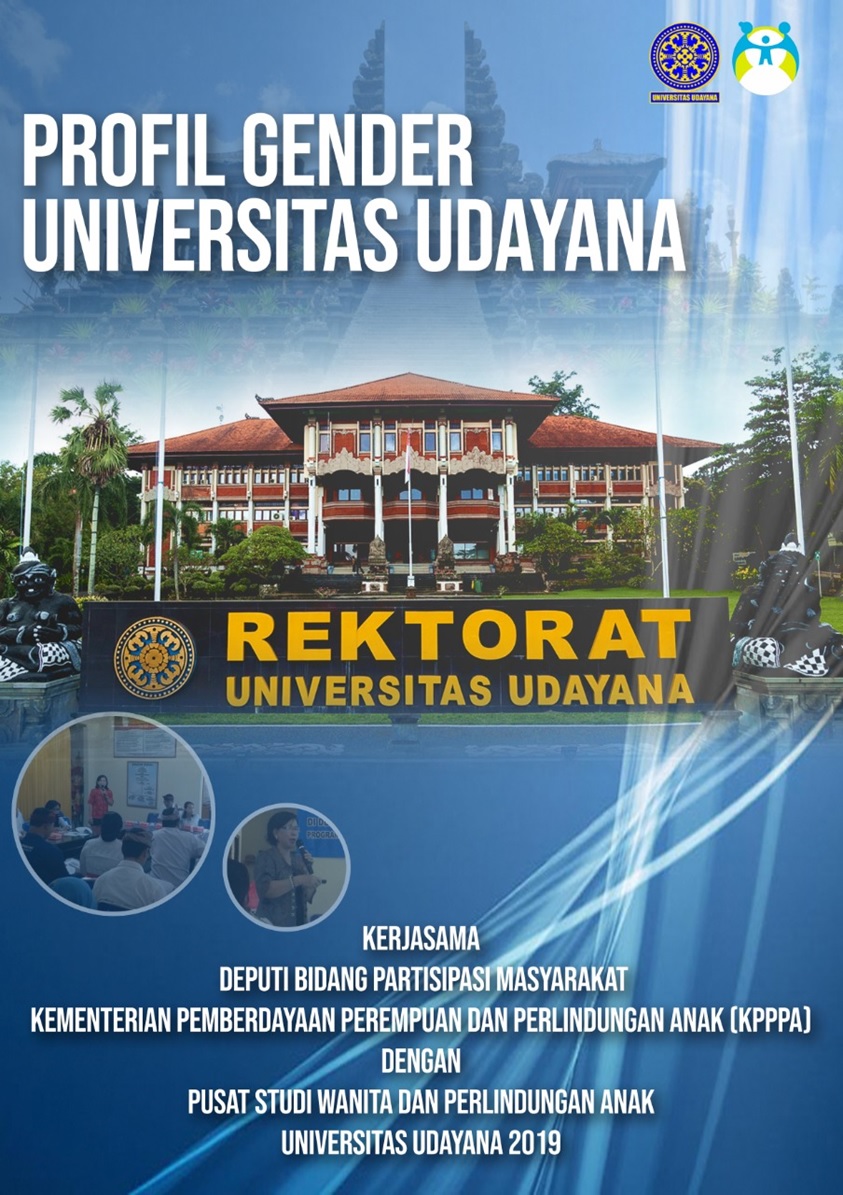
GENDER PROFILE OF UDAYANA UNIVERSITY
NI LUH ARJANI; WIDHIANTHINI
ISBN : - Published : 2019
Abstrak
Until now gender issues in Indonesian society still seem to be an important strategic issue to be addressed. This issue is not only a national issue but also an international issue. This is proven by the inclusion of this issue as one of the eight Millennium Development Goals (MDGs) agreements which then continues to SDGs. Historically, gender discourse began to emerge around the 40s which was initiated by feminists in the western world, then began to emerge around 1977 when a group of feminists in London no longer used old issues such as patriarchat or sexist in discussing male relations and women. This is a smart development, because in fact the problem of inequality in relations between men and women is largely shaped by the differentiation of socially "culturally" and "male" constructs, not biologically (sex or sex). Therefore, the transfer of the discourse of inequality from the biological stage to the socio-cultural / gender stage is theoretically more effective (Nugroho, 2008; x). Furthermore this has become increasingly attractive to many social scientists, especially feminists.
The amount of feminist attention to the problem of gender and women is due to the occurrence of gender inequality in various lives both in the family, community, nation and state. The existence of women in society is still seen as second class citizens so that they still occupy subordinate and marginal positions. This position is less profitable for women than the opposite sex. To improve the lot of women, various attempts have been made by feminists both in the western world and in Indonesia. In Indonesia, one of the fighters for the fate of women who are familiar in the community is Raden Ajeng Kartini. R.A Kartini's struggle did not stop even though she was gone, her ideals were followed up by other Indonesian women leaders who had similar visions to Kartini such as R.A Sutinah Joyopranoto, Rr, Rukmini and others.
R.A Kartini's struggle is an embryo of the struggle for women's rights in Indonesia, especially in terms of the struggle for education for women. Furthermore, after independence of equal rights, opportunities and treatment between men and women have been stated in the 1945 Constitution ps. 27. Therefore, currently normatively both in the 1945 Constitution and in the 1978 GBHN to GBHN 1999 and the current RPJMN have listed equal rights, obligations and opportunities between men and women in all aspects of development. Besides that the government has ratified ILO Convention No. III with Law No. 80 of 1957 concerning equal remuneration between men and women in the same type of work and has also ratified the convention on the elimination of all forms of discrimination against women (CEDAW) by law. No. 7 of 1984.
Various development policies and strategies ranging from Women in Development (WID), Women and Development (WAD), Gender and Development (GAD) and Gender Mainstreaming (GM) followed by gender mainstreaming strategies through Presidential Instruction No. 9/2000. has been taken by the government to realize Gender Equality and Justice (KKG) in the community. Gender Equality and Justice is a vision of the development of women's empowerment. However, what the government has been trying to do since the last three decades seems not to show maximum results. This is reflected in the fact that is still happening in society in general and in particular in the tertiary environment where gender inequality is in some areas of the tri dharma of tertiary institutions, management, human resources, and others. This condition shows that gender mainstreaming (PUG) in tertiary institutions has not been fully implemented.
Therefore, to show or give a more real picture of the gender disparities that still occur, evidence is needed in the form of supporting data published in the form of a gender profile book. In this way, gaps will be identified more clearly which will in turn provide clear guidance to policy makers and program makers. Basically, sex-disaggregated data in the gender profile book can be used as a basis for implementing gender mainstreaming through the preparation of policies / programs / activities and gender responsive budgeting (PPRG). If planners are able to develop PPRG based on real data available at Udayana University, then it is certain that a gender mainstreaming strategy can be applied quickly. This in turn will accelerate the realization of gender equality and justice in tertiary institutions.
